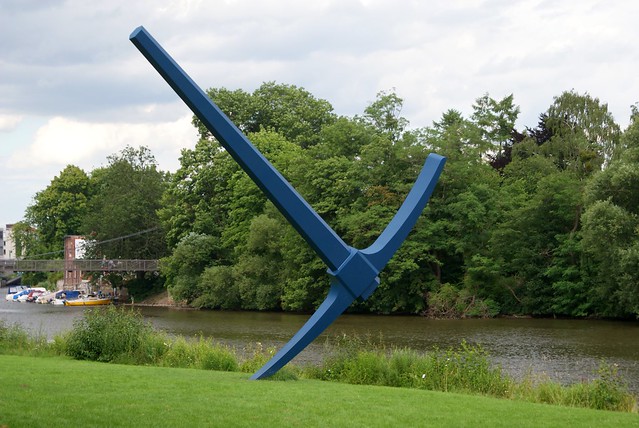Today we’re looking at the words for pickaxe, pike and related things in Celtic languages.
Words marked with a * are reconstructions.
| Middle Irish (Gaoidhleag) | píce = pole, pike pícóid = mattock, pickaxe |
|---|---|
| Irish (Gaeilge) | píce [ˈpʲiːcɪ] = pike, fork, peak píceáil = pike, fork, pitchfork, peak píceálaí = forker, pitcher píceán = peak, tip |
| Scottish Gaelic (Gàidhlig) | pic, pìc [piːçgʲ] = pike pìceach [piːçgʲəx] = armed with pikes, abounding in pikes pìcear = pikeman |
| Middle Welsh (Kymraec) | pig = point, spike, pike pigo = to prick, pierce, goad, peck, sting, bite pigawd = a thrusting or stabbing with a spear, a pricking |
| Welsh (Cymraeg) | pig [piːɡ] = point, spike, pike, lance, pick(axe), prong, beak pigach = darts pigadail = obelisk, spire, pyramid, cone pigaf, pigo = to prick, pierce, goad, peck, sting, bite pig(i)aid = as much as can be picked up or carried on a pitchfork, beakful pigau = pitchfork, hay-fork pigawd = a thrusting or stabbing with a spear, a pricking pigell = goad, prick, prickle |
| Middle Cornish (Cernewec) | piga = to prick, prickle, sting pigol = mattock, pick, pickaxe |
| Cornish (Kernewek) | pig = grub axe, grubber, pick, pickaxe, pickle piga = to goad, incite, sting pigell = hoe, pick(axe), pickle pigallas = to hoe pigellik = picker |
| Middle Breton (Brezonec) | pig = pickaxe |
| Breton (Brezhoneg) | pik = piquant, point, pique pikañ = to sting, bite, pinch pikezenn = pike, spade (in cards) pigell = pickaxe |
Etymology (Irish): from Old French pik(k)e, from Latin pīcca (pickace, pike), possibly from Frankish *pikkōn (to peck, strike), or from Frankish *pīk (sharp point, pike), from Proto-Germanic *pīkaz (sharp point, pike, pickaxe, peak) probably of imitative origin [source].
Etymology (Scottish Gaelic, Welsh & Cornish): probably from English pike or the Middle English pyke (pike, sharp point), which ultimately come from the same Proto-Germanic roots as pik(k)e in Old French.
Words from the same roots include peck, pick, pike, pique, pitch in English [source].
| Irish (Gaeilge) | caib [kɑbʲ/kabʲ] = dibble caibeáil = to plant with an implement, dibble caibeáilaí = planter (of seed), dibbler |
|---|---|
| Scottish Gaelic (Gàidhlig) | caibe [kɛbə] = space, mattock, iron part of tools caibe-sìthe = fairy spade (amulet given to sick people & cattle) |
| Manx (Gaelg) | kiebbey = spade, mattock |
| Old Welsh | cep = pickaxe, mattock, hoe, ploughshare |
| Middle Welsh (Kymraec) | keyp, keib, caib = pickaxe, mattock, hoe, ploughshare |
| Welsh (Cymraeg) | caib = pickaxe, mattock, hoe, ploughshare caib garddwr = hoe caib big, caib bicys = pickaxe |
Etymology: unknown
Sources: Wiktionary, Am Faclair Beag, Online Manx Dictionary, Teanglann.ie, eDIL – Electronic Dictionary of the Irish Language, In Dúil Bélrai English – Old Irish glossary, Geiriadur Prifysgol Cymru, Gerlyver Kernewek, Lexicon Cornu-britannicum: A Dictionary of the Ancient Celtic Language of Cornwall, Dictionaire Favereau, TermOfis, Le dictionnaire diachronique du breton, Etymological Dictionary Of Proto Celtic

